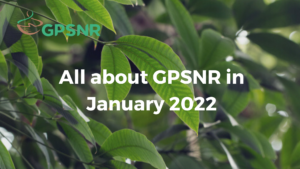The COVID-19 pandemic is impacting the entire natural rubber supply chain. It has triggered car and tire manufacturing companies to operate with a reduced workforce, or temporarily halt production plants altogether. Strict lockdown measures have caused a drastic fall in the sales of consumer tires across Europe. Global demand for natural rubber has dropped, the effects of which will be felt by the 6 million natural rubber smallholders in Asia, Africa and Latin America.
Many smallholders live in poverty, depending on daily wages to feed their families. Their situations will only be exacerbated by the COVID-19 crisis. Already, the Association of Producers and Processing Plants of the State of São Paulo (APABOR) has estimated that for Brazil alone, the subsistence of around 100,000 natural rubber farmers and their direct relatives is at risk.
While COVID-19 exposes the vulnerabilities of smallholders, it also reveals the potential they have to be agents of change and drivers of transformation. The pandemic has reminded us of the connections between human health, resilient landscapes, economic stability and livelihoods; the post COVID-19 world is more likely to devote greater attention to tackling environmental, social and economic impacts of its many supply chains. Smallholders, who produce 85% of the world’s natural rubber supply, are thus key to advancing GPSNR’s vision of a fair, equitable and environmentally sound rubber value chain.
One of GPSNR’s major outcomes for this year has been welcoming our new smallholder members. As of today, a total of 27 smallholder members (with additions from Myanmar) have joined GPSNR. The inclusion of smallholders into the fabric of the Platform provides them the opportunity to drive the agenda for sustainable natural rubber and, in the long-term, realize the social, economic and environmental benefits that sustainability brings.
We encourage GPSNR members to communicate this outcome through the communication channels of their respective organizations. To this end, we launched a quarterly Members’ Communication Toolkit which outlines the suggested key message and provides ready-to-use content for communicating the message. GPSNR Members may access the Members’ Communication Toolkit for Q2 2020 in the GPSNR Forum.
More is being done to fully include these smallholders in the Working Groups and Executive Committee. The Smallholders Representation Working Group continues with its efforts in designing a programme for onboarding smallholders prior to the General Assembly. In the meantime, some of our new smallholder members are already actively involved in Working Group discussions. Additionally, having recognized the urgency to address the impacts of COVID-19 on smallholders, the Equity sub-Working Group is developing a position paper on the issue.





